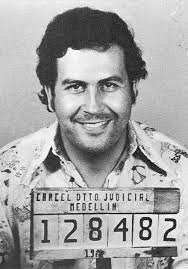
Introduction
Pablo Escobar remains one of the most infamous figures in modern history, synonymous with drug trafficking, wealth, and violence. Born in 1949 in Rionegro, Colombia, Escobar rose from humble beginnings to become the head of the Medellín Cartel, one of the most powerful drug syndicates in the world. His life and actions have not only left an indelible mark on Colombian society but have also influenced global drug policies and law enforcement strategies.
The Rise of Pablo Escobar
Escobar began his criminal career in the late 1970s, initially involved in smuggling marijuana before transitioning to cocaine production. By the 1980s, the Medellín Cartel controlled 80% of the cocaine smuggled into the United States, amassing a fortune that made Escobar one of the richest men in the world. His empire was marked by ruthless tactics, including violence against rivals and even politicians who opposed him.
Despite his criminal activities, Escobar portrayed himself as a Robin Hood figure, investing a portion of his wealth into local communities, building schools, and funding sports teams. This duality of a community benefactor and a violent drug lord created a complex public perception, complicating the narrative surrounding his legacy.
Downfall and Death
Escobar’s unchecked power attracted the attention of U.S. authorities and Colombian law enforcement. After a series of violent retaliations against police and government officials, the Colombian government, alongside U.S. agencies, intensified efforts to dismantle his cartel. Escobar was eventually killed in a shootout with Colombian National Police on December 2, 1993. His death marked a significant turning point in the war against drugs in Colombia.
The Legacy of Pablo Escobar
Today, Pablo Escobar is a controversial figure. While he is remembered for his violent reign as a drug lord, he is also the subject of numerous documentaries, books, and films that explore his life. His story serves as a cautionary tale about the impacts of drug trafficking and the socio-economic conditions that can give rise to such criminal enterprises. Furthermore, the residual effects of his actions are still felt in Colombia, as the country continues to grapple with violence and the ongoing legacy of drug production.
Conclusion
Escobar’s life exemplifies the complexities of crime, power, and poverty, raising essential questions about society’s response to drug-related violence. As drug-related issues continue to evolve, the lessons learned from Escobar’s legacy remain relevant. By understanding the past, policymakers and citizens can work towards more effective solutions that address both the symptoms and root causes of drug trafficking and violence in Colombia and beyond.



